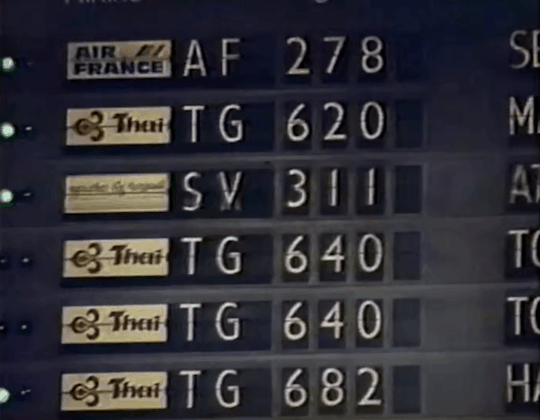#Calcutta
Text


Bidhannagar Mela, Kolkata.
#kolkata#kolkata diaries#calcutta#india#west bengal#desi tumblr#desiblr#desi aesthetic#desi tag#bangla tag#kolkata street photography#my photography#p
6K notes
·
View notes
Text






I sweat and I ache for
Your eyes and the way you breathe
#as i said before i really like seeing his mouth movements 🙏#sleep token#sleep token worship#sleep token vessel#vessel#vessel i#calcutta
444 notes
·
View notes
Text

#pensieri#thinking#poetic#pensieri sparsi#love#amore#citazioni#musica italiana#musica#music#calcutta#testi#testi canzoni
73 notes
·
View notes
Text
Vorrei essere in un altro tempo
In cui se sbagli riparti da capo
Ma il futuro che io avevo in mente
Sembra già far parte del passato
#pensieri#frasi#pensieri personali#frasi e citazioni#citazioni#frasi tumblr#frasi belle#citazione vita#frasi vere#amore#calcutta
101 notes
·
View notes
Text
Most books on the Bengal delta begin by describing it as “riverine,” [...] the land is the product of fluvial action [...]. [I]n thinking about Bengal, one tends to imagine the ricepaddy fields [...]. It was not so all the time; Bengal was never really a land of farming [...]. Traveling through Bengal in the eighteenth century, the French traveler Orme saw a highly sophisticated water-based economy - the blessing of rivers - irrigated [...] by the monsoon rains and annual flooding. [...] The rivers were not just channels of water; they carried a thriving trade, transporting people and goods from one part of the delta to another. Today, Bengal is generally seen as comprising lush green rice paddies [...]. Rivers are often presented as causing immense grief [through seasonal flooding] [...]. Clearly, there is a mismatch here. [...] How (and when) did Bengal’s social milieu transform from water-based to land-based? [...] Bengal’s essential character as a fluid landscape was changed during the colonial times through legal interventions that were aimed at stabilizing lands and waters, at creating permanent boundaries between them, and at privileging land over water, in a land of shifting river courses, inundated irrigation, and river-based life.
Such a separation of land and water was made possible not just by physical constructions but first and foremost by engineering a legal framework that gradually entered the popular vocabulary. [...] BADA, which stands for the Bengal Alluvion and Diluvion Act, [was] a law passed by the colonial British rulers in 1825, following the Permanent Settlement of 1793. [...] The environment of Bengal can be described as hybrid, where the demarcation between land and water is neither well-defined nor permanent. Nature here represents a borderless world, or at best one in which borders are not fixed lines on the ground demarcating a territory, but are negotiated spaces or zones. Such “[...] spaces” comprise “not [only] lines of separation but zones of interaction…transformation, transgression, and possibility” (Howitt 2001, 240).
---
Current boundaries of land and water are as much products of history as nature and the colonial rule of Bengal played a key role in changing the ideas and valuations of both. [...] The debate on what constituted productive and unproductive uses of land preceded the application of English property law not only to establish permanent zamindari (a common term for the system of landlordism) settlement of land tenure in India, but also to valorize land in what had essentially been a land-water hybrid environment. The colonial land revenue system, by seeing land as more productive (being able to yield revenue) and useful, began the long historical process of branding the rivers of Bengal as uncivil and in need of control. [...] The problem with deltaic land is its non-permanent nature, as silt is stored by rivers: rivers do not always flow along a certain route [...] The laws that the colonial British brought to Bengal, however, were founded upon the thinking of land as being fixed in place. [...]
---
Experiments to fine-tune the land-based economy began in 1760 when Bengal, and its ceded territories, came under the East India Company rule. [...] To entrench the system, the Permanent Settlement of 1793 created zamindars (or landlords) “in perpetuity” - meaning for good. The system was aimed at reducing the complexities of revenue collection due to erratically shifting lands and unpredictable harvests in a monsoon-dependent area [...]. Alarmed at the possibility of dismemberment of their estates, the zamindars decided to bind tenants to the same conditions to which they themselves were bound by the colonial government, and one of their actions was to create patni tenures or perpetual leases. [...]
It also meant that the right to collect rent from the tenants, often through the use of force, devolved to the lower layers, making the upper-layer zamindars more of a juridical rather than a real social entity in the eyes of the peasants. The patnidars, finding how much trouble this arrangement took off their own back, created dar-patnis or patnis of the second degree [...]. The dar-patnis created se-patnis or patnis of the third degree. The East India Company, therefore, had to legalize, through Regulation VIII of 1819, the creation of such formations, thus giving a de jure recognition post facto [...].
The regulation, although innocuous and simple, was of great historical potency: it became the key that unlocked the door to environmental and socio-economic changes of unparalleled magnitude. From a riverine community, within a hundred years, Bengal was transformed into a land-based community. [...]
---
The meaning of property also changed as a result of this law: the cultivators began to lose the right to occupy the land that they had enjoyed since ancient times because the colonial British had enumerated the characteristics of the zamindari property as an absolute right of proprietorship in the soil [...].
[T]he Company then began to contemplate the problematic issue of legalizing the fictional entities of chars [...]. The law that was created for this purpose -- and still rules the rights of ownership of charlands -- is the Bengal Alluvion and Diluvion Regulation Act (BADA) of 1825. [...] BADA was meant to establish a set of rules to guide the courts to determine the claims to land “gained by alluvion” or accretion, and the resurfaced land previously lost by diluvion or erosion. Even if one takes it for granted that chars are technically non-land in the sense that they exist within river banks, the difficulty remains that when a piece of land is lost to bank erosion, it may not arise in exactly the same location or arise at all within the foreseeable future. This means the owner has no certainty that they will get it back when it resurfaces or when another char rises nearby. [...] Thus, the key to establishing land rights in the court of law remained the payment of rent, even on diluviated land. [...] Such a rule will, however, not be applicable if a river suddenly changes its course and separates a considerable piece of land from one to join it with another farm, but without destroying the identity of the land so removed -- thus preventing legal recognition. New accretions in large navigable rivers would be the property of the state [...].
---
All text above by: Kuntala Lahiri-Dutt. “Commodified Land, Dangerous Water: Colonial Perceptions of Riverine Bengal.” In: “Asian Environments: Connections across Borders, Landscapes, and Times.” Edited by Ursula Munster, Shiho Satsuka, and Gunnel Cederlof. RCC Perspectives, no. 3, 17-22. 2014. [Bold emphasis and some paragraph breaks/contractions added by me.]
#summary of how britain took over bengal#calcutta#sundarbans#abolition#ecology#imperial#colonial#mangroves
246 notes
·
View notes
Photo


His lips. His teeth. that little show of tongue. I feel like a Victorian man seeing an ankle.
180 notes
·
View notes
Text

calcutta - sleep token - d e t a i l s
188 notes
·
View notes
Text
Triste pensare che noi
Noi due non saremo niente.
-Calcutta
58 notes
·
View notes
Text

বাঙালির দূর্গা পুজো
#aesthetic#durga pujo#durga puja#durga#ma durga#photography#moodboard#writing#bengali#bong#desi#desi tag#desiblr#being desi#kolkata#calcutta#love#india#art#art for the sake of art#joy#happy#festival#puja#mahalaya#beauty#dark academia#messy layouts#indian#heritage
88 notes
·
View notes
Text
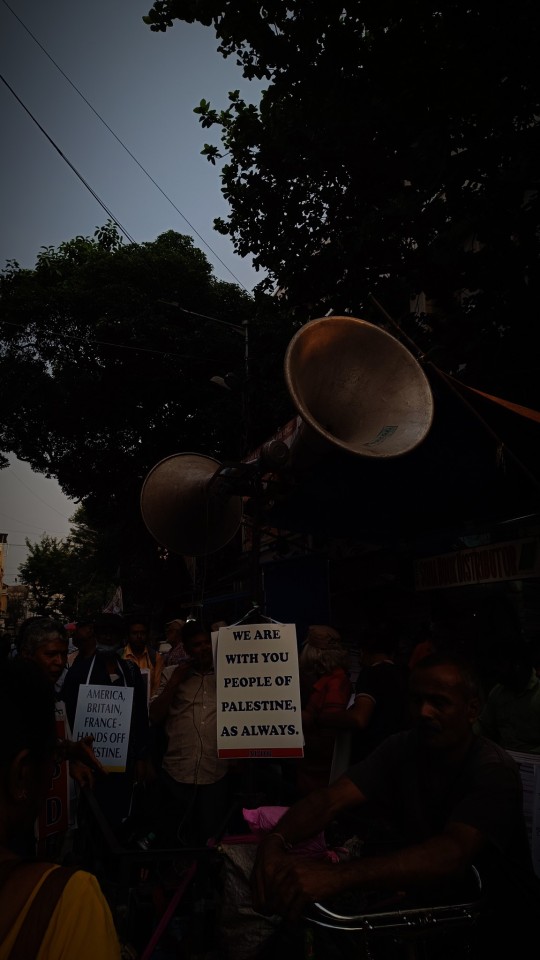
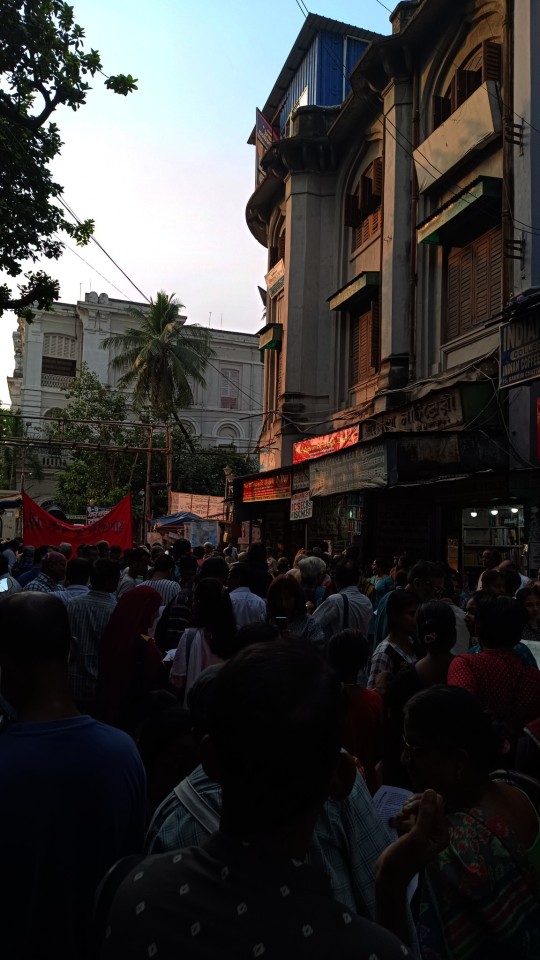
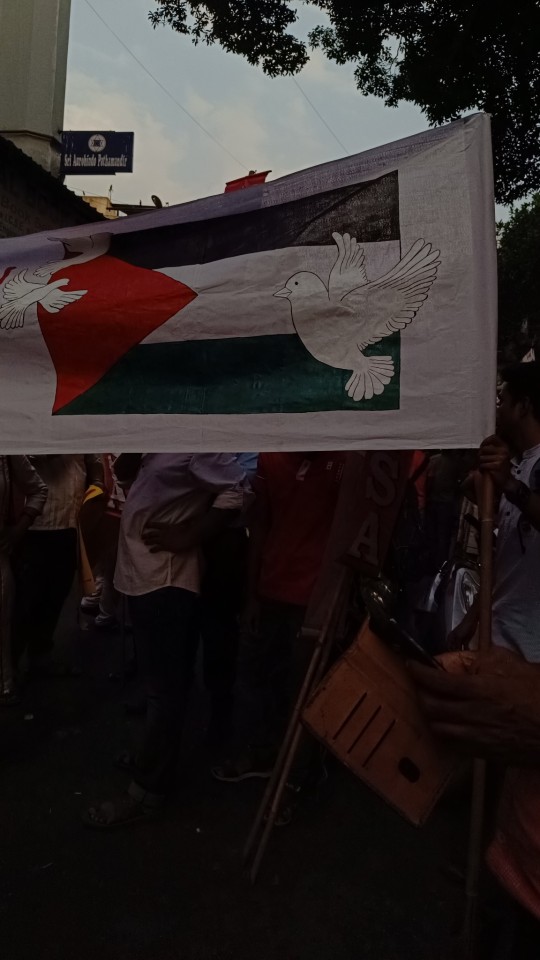



We are with you people of Palestine, as always.
Pro-Palestine protests in Kolkata, November '23.
#from the river to the sea#from the river to the sea palestine will be free#palestine#free palestine#i stand with palestine#stand with gaza#palestine protest#free gaza#calcutta#kolkata#bangla tag#my photography#p
349 notes
·
View notes
Text







Calcutta (hand appreciation)
#ok last calcutta gif dump#i really like this spidery thing he does with his hands it's super fascinating to watch#sleep token#sleep token worship#sleep token vessel#vessel#vessel i#hands#calcutta
361 notes
·
View notes
Text
মা আসছে...
When pujo vibes hit...it hits hard.
#original post#aesthetic#desiblr#desi tag#devipaksha diaries#calcutta#kolkata#kolkata aesthetics#bengali aesthetics#durga pujo#pujo ashchheee#mahalaya#chandi paath#birendra krishna bhadra#photography#kumortuli#bengblr#bangla tag#poribrajok#pujo kobe ashbeeeeeeeeee
89 notes
·
View notes
Text
Quando fai un sacco di errori
Gli altri tutti campioni
#pensieri#frasi#pensieri personali#frasi e citazioni#citazioni#frasi tumblr#frasi belle#citazione vita#frasi vere#amore#canzoni#gazzelle#calcutta#tatanai#indie italia#citazioni musica#musica#frasi famose#frasi brevi#frasi e pensieri#frasi libri#frasi italiane#idem gazzelle
39 notes
·
View notes
Text





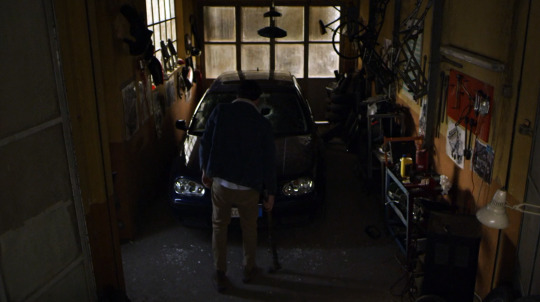




Tutti - Calcutta
x x x
Manuel e Simone
#un professore#simuel#v.v.b.#Manuel ferro#simone balestra#nicolas maupas#damiano gavino#comparatives#lyrics#tutti#calcutta#manuel x simone
36 notes
·
View notes

